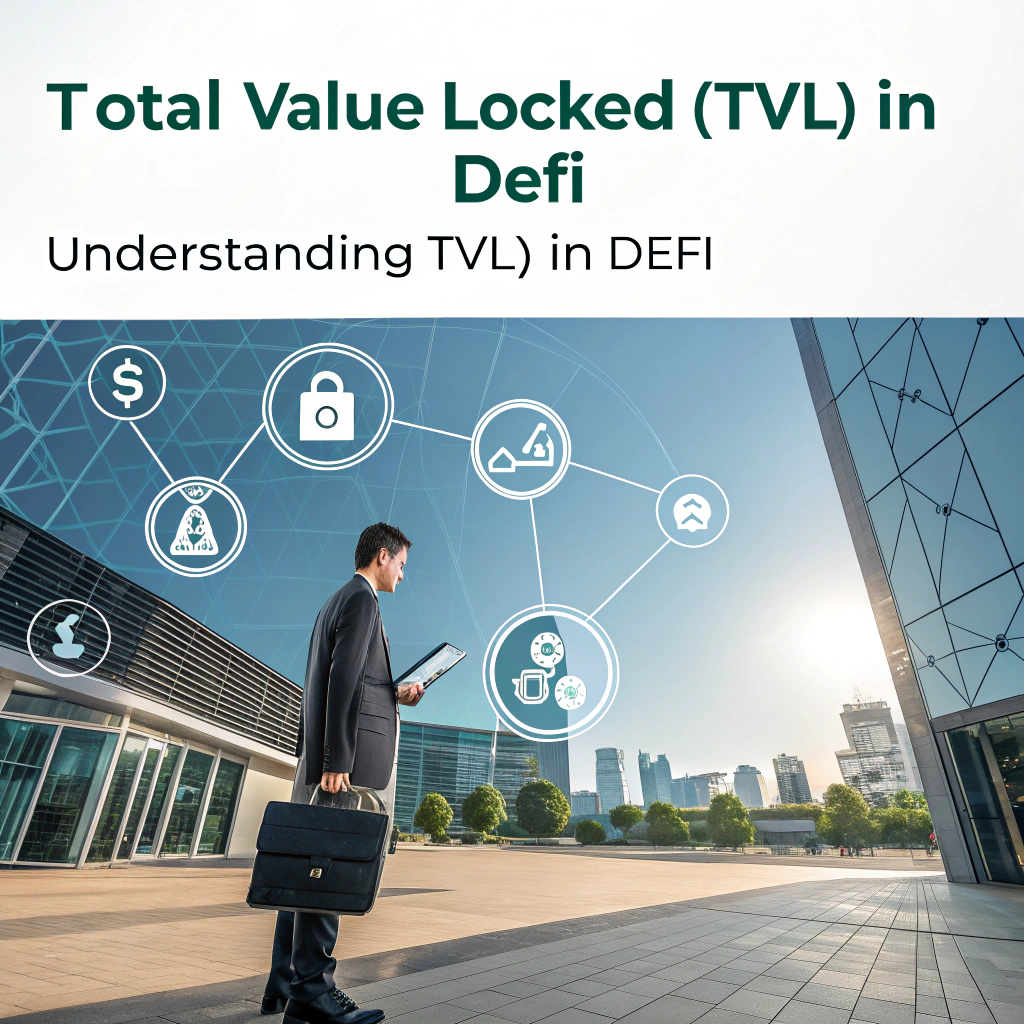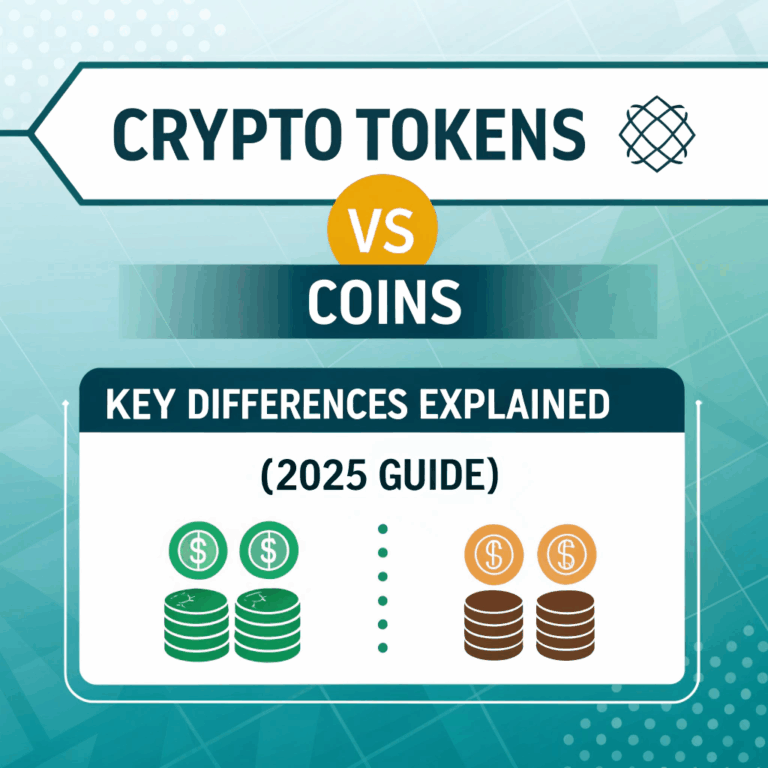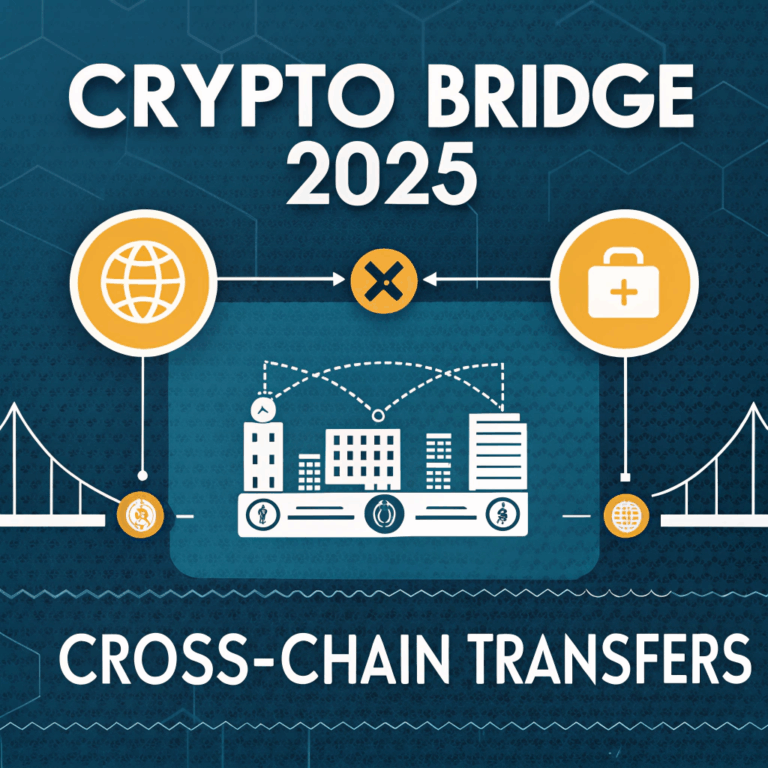What Is TVL in DeFi? Understanding Total Value Locked (2025 Guide)

Introduction
In the world of DeFi, TVL is one of the most quoted metrics. But what exactly does it mean? And how can you use it to make better investment or research decisions? In this 2025 guide, we break down everything you need to know about Total Value Locked.
What Is TVL in DeFi?
TVL stands for Total Value Locked — the total amount of assets deposited in a DeFi protocol or across a blockchain.
TVL measures:
- How much crypto is staked, supplied, or locked in smart contracts
- The trust and popularity of a protocol
- The capital being used for lending, trading, farming, or governance
How TVL Is Calculated
TVL = Total value of all tokens deposited in a protocol, priced in USD (or another currency)
For example, a lending protocol with:
- 10,000 ETH ($30M)
- 5M USDC
- 1,000 BTC ($65M)
TVL = $30M + $5M + $65M = $100M
Some aggregators show TVL per token, per chain, or per category (DEXes, lending, etc.)
Why TVL Matters
- Shows protocol health and growth
- High TVL = more trust, usage, liquidity
- Helps compare DeFi platforms
- Used by investors to gauge platform strength and adoption
- High TVL can increase rewards (e.g., in farming or staking)
But remember: TVL is just one metric — not a guarantee of quality.
TVL vs Market Cap
| Metric | Measures | Common Use |
|---|---|---|
| Market Cap | Total value of a token (price × supply) | Investor sentiment, value of project |
| TVL | Total funds locked in protocol | Usage, traction, liquidity |
Some analysts use TVL/Market Cap ratio to evaluate if a token is over- or under-valued.
Interpreting TVL Trends
📈 TVL Rising =
- More users depositing
- Higher trust
- Potential token price growth
📉 TVL Dropping =
- Users withdrawing
- Lower confidence or better yields elsewhere
- Token price falling
Watch TVL alongside token price, volume, and active users for a complete picture.
Top Chains by TVL in 2025
As of 2025, these chains lead in Total Value Locked:
| Blockchain | Estimated TVL (May 2025) |
|---|---|
| Ethereum | $40B+ |
| Arbitrum | $15B+ |
| BNB Chain | $10B+ |
| Solana | $9B+ |
| Polygon | $8B+ |
| zkSync | Rapidly growing |
Layer 2 chains now compete with Layer 1s for TVL dominance.
Top DeFi Protocols by TVL
(Varies over time, check real-time rankings)
| Protocol | Chain | TVL Highlights |
|---|---|---|
| Lido Finance | Ethereum | Liquid staking leader |
| Aave | Multichain | Lending across chains |
| Curve Finance | Ethereum | Stablecoin swaps |
| Uniswap V3 | Multichain | Leading DEX by TVL + volume |
| GMX | Arbitrum | Perpetual futures DEX |
| Convex Finance | Ethereum | Boosted Curve yields |
Use sites like DefiLlama to monitor rankings.
Limitations and Misconceptions of TVL
❌ TVL doesn’t measure protocol revenue or profitability
❌ Can be manipulated via incentives or whales
❌ Doesn’t account for user count or engagement
❌ Doesn’t reflect risk level of locked assets
❌ High TVL ≠ high innovation or decentralization
Always pair TVL with other metrics: dev activity, users, fees, etc.
Tools to Track TVL
- DefiLlama – Most popular aggregator
- DeBank – Great for personal TVL tracking
- Token Terminal – TVL + revenue analytics
- DappRadar – DApp activity across chains
- L2Beat – TVL on Layer 2 networks
These tools help compare TVL trends over time and across ecosystems.
FAQ
Is higher TVL always better?
Not always. A protocol with high TVL but no real users or utility may not be healthy.
Can TVL be faked?
It can be inflated with incentives, bots, or whales — always check other metrics.
What’s the TVL of my own wallet?
Use DeBank or Zapper to track your personal portfolio’s locked assets.
Why did TVL drop suddenly in a project?
It could be a hack, user exodus, token dump, or simply market volatility.
Conclusion
TVL is a key metric in DeFi, offering insight into how much trust and capital a protocol has attracted. But like all metrics, it’s not the full story. Use it wisely — alongside other indicators — and you’ll gain a much clearer view of which platforms are truly leading Web3 in 2025.





